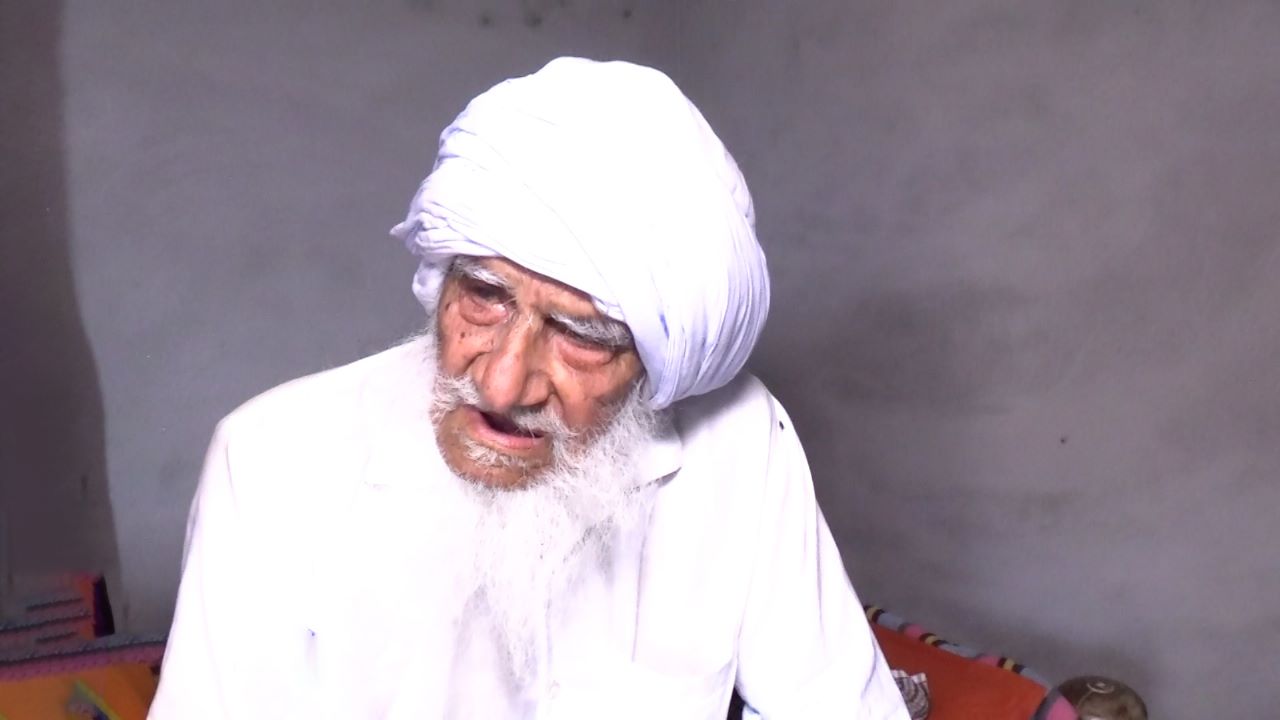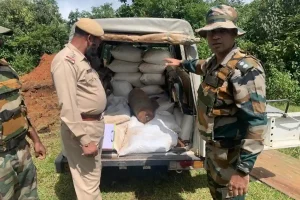Chandigarh: World War II Sikh regiment veteran 108-year-old Karnail Singh Gill remembers Queen Elizabeth with a heavy heart as the British did not give him 25 acres of land promised for his battleground bravery.
Living in Khidkiyan village of Muktsar district of Punjab, Gill told indianarrative.com in an exclusive interview that the British promised to give him Rs 5000 or 25 acres of agricultural land as per his choice because of his commendable service to the Royal Army. However, they did not live up to their promise.
He showed this correspondent, the original letter to that effect which he has preserved in a laminated cover.
Recruited in 1939 at Sialkot army base, now in Pakistan, Gill participated in the World War II battles in Italy, Africa and Egypt. He vividly remembers his days in the service of the Royal Army and believes that “those were the good old days.”
The Royal Army continues to pay him a pension of Rs 62,000 per month, which is regularly credited to his bank account directly from London.
Since he and his adopted son Iqbal Singh do not know English, they could not remind the UK government about the promise. However, he has been telling the Indian Army through district Ex-Servicemen Welfare Board officers to allot him the promised land but in vain. After 1947, the Indian Army paid him Rs 2500 and kept Rs 2500 pending for some other day.
Gill argues that the Army should pay him the pending amount, now equivalent to the existing market value of 12.5 acres of land. In pre-partition days, 25 acres of land (Morabba) cost Rs 5000. Presently, land in his village costs about Rs 25 lakh per acre. Using simple arithmetic, the state owes him an estimated Rs 3.12 crore, he claims.
The veteran, after passing 8th class in the village school, travelled to Sialkot, now in Pakistan, to get recruited into the Royal Army. Finding him physically and mentally fit, the recruiting officer mentioned his reduced age from 24 years to 18 years in the official records. The ones above 18 years of age were not eligible to get recruited, he recalled.
Narrating his days in Africa, Gill says, hurly-burly black men and their women remained naked in those days with no sense of clothing. In Italy, ‘Goras’ (Whites) tilled their land with horses, unlike in India. But the wheat and maize crop fields appeared similar to those in Punjab. The Egyptian Muslims were too devoted to religion. Mosques remained jam-packed on Fridays for prayers. “We never got to see faces of fair Egyptian Muslim women as they covered themselves with black cloth (Burqas), ” the veteran recollects.
Talking metaphorically about modern times, he says, “weather has changed…now boys and girls go to same schools…old and young sit together and sing songs on seeing each other…it has brought immorality in the society….”
He fondly remembers how ‘jawans’ (army men), while taking food, would pour pure ‘Desi Ghee’ into their dishes, followed by a bite of sweet ‘Gurr’ (jaggery). They also preferred a glass of hot milk before going to bed.
Gill recalls that the Sikh Regiment boys in wrestling and racing competitions often defeated the men from Muslim and Dogra regiments. “We were much stronger than others with Waheguru’s blessings and won all sports competitions held by the Royal Army,” he maintains.




















